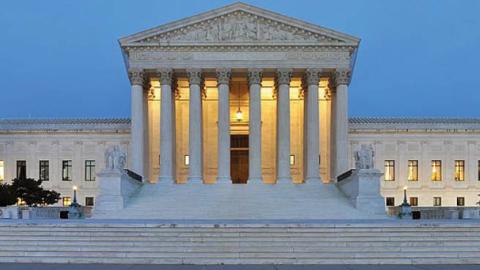America's trade war with China took an unexpected turn with the onset of the COVID-19 pandemic. As the global shutdown continues to ravage both countries' populations and economies, the trade war has taken a backseat to more critical health and economic concerns.
Progress is being made against COVID-19 thanks to an unprecedented response by the biopharmaceutical sector. Hundreds of potential treatments and vaccines are currently being tested and more than one-half of this research and development is occurring in the U.S. But China is making gains in its intellectual property protections that will have far more important long-term implications in its race to develop and grow its own innovation economy.
China has turbocharged its efforts to safeguard its own IP with its recent announcement of its "Iron Fist" IP enforcement plan. Yet China continues to disrespect other countries' innovators and creators with its rampant IP theft. China's dual strategy of protecting its domestic IP while stealing the labors of innovators and creators in other countries represents quite the paradox. The country is embracing these two seemingly contradictory IP strategies in attempting to grow its own innovation economy in these troubled times.
Recently released reports by the U.S. Trade Representative and the House Republican Study Committee specifically call out China for its blatant IP piracy. They call for action by the U.S. government to better protect the fruits of creative labors of U.S. citizens. Unfortunately, rather than adopting better IP protections to respond to global threats from the People's Republic of China, the U.S. is instead diluting its IP laws and undermining its own innovators and creators.
During the pandemic, the focus of the U.S. has been on weakening biopharmaceutical patents. But many other IP rights besides patent rights are under challenge today. Another example is copyright. The U.S. further risks losing its competitive advantage over China in securing IP from theft in in the upcoming copyright case at the Supreme Court, Google v. Oracle.
The fact that Google copied Oracle's software code to build Android, its smartphone operating system, is not disputed by anyone—not even by Google. Both the Obama and Trump administrations recognized, in their respective court filings, that Google directly copied 11,500 lines of computer code "from a rival software platform, inserted them into a competing, incompatible platform [Android] and then marketed the infringing product" to consumers. But Google is now arguing before the Supreme Court that the software code it took is not copyrightable—or alternatively, if it is, that the "fair use" doctrine should permit its illicit copying.
As it was first developed, fair use is a limited exception for education, parody, news reporting or other transformative purposes. For Google to argue that its undisputed copying of computer code for its own commercial gain is "fair use" is absurd.
Moreover, software code is clearly protected under American copyright laws. U.S. copyright law has expressly protected software code since Congress enacted in 1980 the Computer Software Copyright Act. What followed was a technological and commercial explosion in personal computers running all sorts of software programs—as well as the explosive technological growth in the software that runs on the internet and in our mobile devices.
Should the Supreme Court accept Google's rationalization for its IP theft, it will undermine the U.S.'s competitive advantage to China in promoting high-tech innovation. The resulting legal precedent it will create will make it more difficult for the U.S. to prevent both domestic and international IP theft—especially from China, which consistently tries to take advantage of all loopholes and legal uncertainties. When trade negotiations resume, the U.S. position will decline and it will become harder to hold China accountable for its blatant disregard of American IP owners' rights. Worse yet, China will be able to credibly say that it has stronger IP laws than the U.S., which again would weaken the U.S.'s position at the negotiating table.
For the sake of global security for U.S. creators and innovators, the Supreme Court should hold Google accountable for copyright infringement. Congress should also act to safeguard U.S. innovation. It should enact into law the bipartisan bill introduced on June 18, 2020 by Senator Thom Tillis (R-NC) and many colleagues, Safeguarding American Innovation Act, which would end Chinese theft of IP developed at U.S. colleges and universities.
It may seem beneficial to dilute IP protections during a crisis, whether in health care or software, but the negative effect on long-term innovation is far worse. It undermines global protections for IP, will slow the American innovation economy and will make the U.S. less prepared for the next crisis, when it once again must turn to American innovators and creators for solutions.
Read in Newsweek















